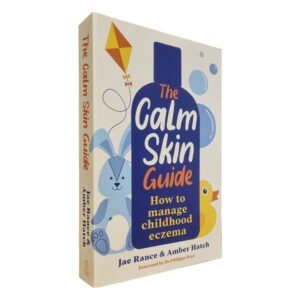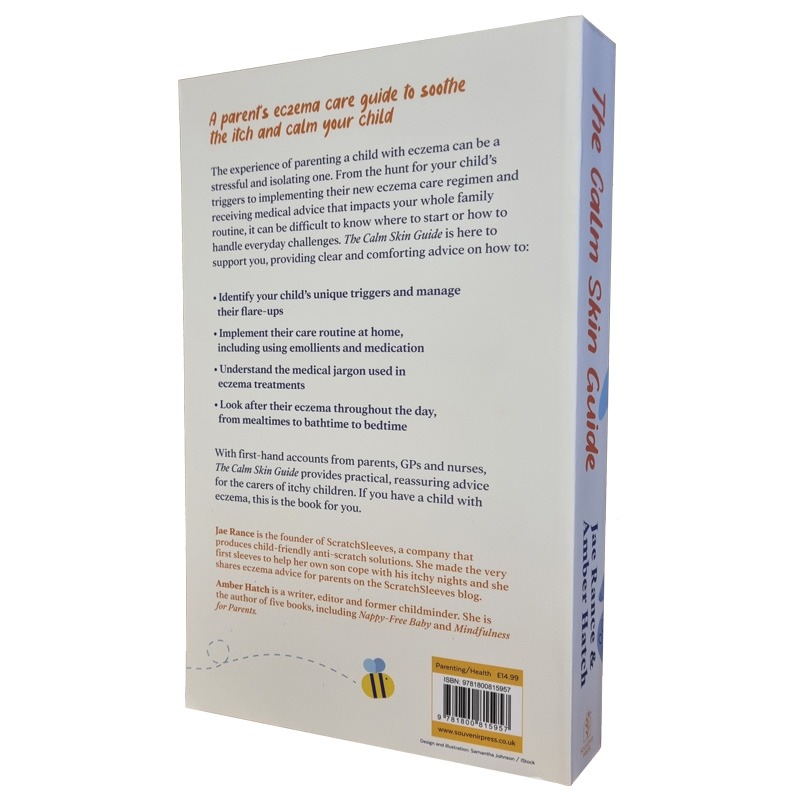Can probiotics help eczema in babies and children? Alternative remedies #4

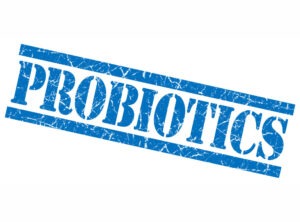

Eczema is one of those horrible conditions where there is no single treatment that works for everybody. Annoying as it is, you will probably have to try lots of different things – ruling out particular foods, washing powders, and fabric types – before you find the best way to prevent or alleviate the symptoms of eczema. That’s why it is helpful to know of all possible preventions, remedies and treatments in order to see what works (if anything) for your child. If you’re constantly researching possible treatments for eczema, you’ll probably be aware that some ‘alternative’ remedies like Aloe vera which do seem to work for some children. Along the same lines, there has been much discussion about the potential benefit of probiotics in treating eczema. Unlike many alternative remedies, there is ongoing scientific research into the effectiveness of probiotics in treating eczema.
What are probiotics?
Probiotics are live bacteria and yeasts which are thought to have various health benefits. They are thought to prevent and treat a range of conditions. According to NHS Choices, they are ‘usually eaten in yoghurts or taken as food supplements, and are often described as “good” or “friendly” bacteria. Probiotics are thought to help restore the natural balance of your gut bacteria when it has been disrupted.’ But, as with most ‘health’ products, the advertisers have jumped on the bandwagon. You’ve probably noticed all number of probiotics products being marketed to kids. Along with optimistic sounding claims about what each can do. Despite this, it seems to be widely accepted that probiotics are helpful in treating diarrhoea, irritable bowel syndrome (IBS) and a number of other gut-related problems.
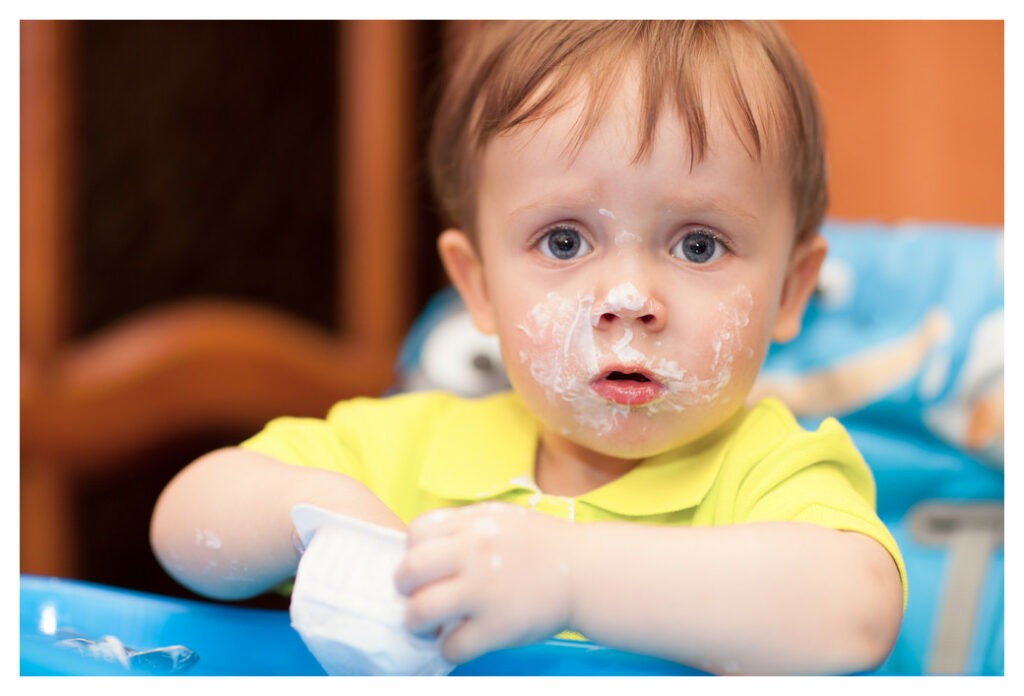
Research into probiotics and eczema
So, now we know what probiotics are, but how are they relevant to eczema?
According to the National Eczema Organisation’s website and a clinical study into the role of bacterial pathogens in atopic dermatitis, eczema sufferers have a ‘highly abnormal’ balance of bacteria on their skin and ‘a striking susceptibility to colonization and infection with Staphylococcus aureus‘. The presence of these bacteria is thought to cause skin infections, inflammation, and trigger immune responses. All of which can worsen the symptoms of eczema.
Making probiotics’ promise to restore the natural balance of bacteria seem like it could be pertinent in treating eczema.
Oral probiotics in pregnancy
A few years ago there was a study (Kukkonen, 2007, Skin and Allergy Hospital, University of Helsinki) which showed that there was some benefit in giving probiotic supplements to expectant mothers and continuing to treat the child once it was born. While helpful to people who knew their children were likely to suffer eczema in early childhood, this conclusion was of little use to the large number of us whose children developed eczema unexpectedly, or who hadn’t made the connection until eczema appeared. Further studies tried to find out whether probiotics could be beneficial if introduced birth. However, the results up to now have been inconclusive.
Oral probiotics in babies and children
In April 2015 another study looked at babies and children taking two probiotic strains – Lactobacillus paracasei and Lactobacillus fermentum. These were tested against a placebo in children between 0 and 18-years-old with moderate atopic dermatitis (eczema). The two probiotic strains were tested singly and in combination. After three months, children in all the probiotics groups showed improved eczema symptoms. These benefits remained for at lease a month after the child stopped taking the probiotic supplement.
There were particular improvements in the under 12s group. This was thought to be because intestinal microbiota may be easier to alter with probiotic supplements in younger people. However, the full age range of participants saw improvements in their eczema. These improvements included a reduction in the size of the affected areas and less oozing, scratching, dryness and redness. Importantly, the study included quality of life measures. The probiotic groups experienced better sleep, reduced symptoms and more positive feeling about activities affected by their skin.
However, since then a revised Cochrane review (Boyle, 2018) of the effectiveness of probiotics in treating eczema has been published. Cochrane reviews consolidate the results of all the available published and unpublished studies which meet standardised requirements for robust testing. This review included the results of 39 randomised controlled trials involving 2599 randomised participants. It concluded that ‘compared with no probiotic, currently available probiotic strains probably make little or no difference in improving patient‐rated eczema symptoms. Probiotics may make little or no difference in the quality of life for people with eczema nor in investigator‐rated eczema severity score; for the latter, the observed effect was small and of uncertain clinical significance. Therefore, the use of probiotics for the treatment of eczema is currently not evidence‐based.’ Discouragingly, this conclusion was again backed up by another study in 2020.
Research into topical probiotics for eczema
In 2018, a very interesting early-phase clinical trial saw adults and children with atopic dermatitis treated with a topical probiotic skin therapy. The live bacteria Roseomonas mucosa was applied to the skin in an effort to alter the skin’s microbiome and relieve the symptoms of eczema.
First the treatment was tested in adult volunteers and then in children aged 9 to 14-years-old. The findings in both groups were consistent. An article about the clinical trial at the National Institutes of Health (NIH) was published on the National Institute of Allergy and Infectious Diseases website. It reported that the NIH study found ‘there were no complications or adverse effects, and most participants experienced improvements in their eczema, including a reduced need for topical steroids. The researchers also found that treatment was associated with decreases in the S. aureus population on the children’s skin.’ The study itself concluded that ‘R. mucosa treatment was considered safe and reduced disease severity in both children and adults. The results from this initial study support further evaluation of topical R. mucosa for treating atopic dermatitis.’
However, subsequent a subsequent placebo-controlled trial was not so positive and this treatment is not currently being developed commercially.
In summary
Unfortunately, there isn’t strong evidence supporting the use of probiotics in the treatment of eczema. However, the level of variation in the results of the various studies does seem to indicate that some strains of probiotics may be helpful for groups of eczema sufferers, particularly children.
What are probiotic supplements?
Probiotic supplements for babies and children are produced as powders or drops which can be bought online or from health food shops. These can be either mixed with milk or food, or placed directly in your child’s mouth. From experience, the powders tend to sink to the bottom of the cup. While this isn’t a problem for bottles and sippy cups, using a straw makes sure that they are actually ingested and not left at the bottom of an open cup.
When selecting a probiotic supplement for your child with eczema, remember that it’s the Lactobacillus paracasei and Lactobacillus fermentum strains which you’re looking for. These are found in a number of infant probiotic formulations. However, as with all things eczema, things are not straightforward and some probiotic strains included in these blends may not be helpful. Initial research indicates that some probiotic strains generate histamines, which can aggravate eczema. These strains include Lactobacillus casei and Lactobacillus bulgaricus which are found in a number of infant probiotic blends, largely because they help digestion. Here in the UK, eczema friendly L. paracasei is included in the Proven Probiotics infant range which doesn’t include either L. casei or L. bulgaricus. Both L. paracasei and L. fermentum are included in Aptamil formula milk, which again doesn’t include any histamine generating probiotics.
What about probiotic foods?
Probiotics are also found in certain food groups, notably dairy products. We like some of the recipes listed on the Parents website – the smoothies and yoghurt dips are both tasty and very easy to make. Please be aware that the study found benefit in treating eczema with the L. paracasei and L. fermentum probiotics strains. Probiotic food groups may not contain these strains, or may not contain the strains in sufficient concentration, to affect eczema. Also, many foods marketed as being high in probiotics contain high levels of histamine generating L. casei or L. bulgaricus so may aggravate eczema. These include fermented foods like aged cheese, sauerkraut and kimchi, and also chocolate, processed meats and wine (although this shouldn’t be a problem for children).
It’s worth approaching foods which are marketed as having health-giving probiotic benefits with a dose of scepticism. You only need to walk down the yoghurt and snacks aisles of any major supermarket to see a number of foods marketed to parents extolling the virtues of their probiotic contents.
The Parents.com website makes the point that the marketing is way ahead of the science and NHS Choices warns that “Probiotics are regulated as foods, so don’t undergo the rigorous testing and approval process of medicines”. It goes on to say that this means we don’t know whether a probiotic yoghurt, supplement or tablet contains what is stated on the label, and whether the amount of ‘good’ bacteria is enough to have a beneficial effect. “There’s likely to be a huge difference between the pharmaceutical-grade probiotics that show promise in clinical trials and the probiotic yoghurts and supplements sold in shops, which may not live up to the advertised claims,” the NHS states.
Summary
We know how awful it is to stand by and watch a child suffer from eczema. That’s why it’s worth trying a range of treatments. NHS Choices states that probiotics appear to be safe and that they shouldn’t cause any unpleasant side-effects in someone with a healthy immune system. That said, the evidence supporting the use of probiotics in alleviating eczema symptoms is not strong. With that in mind, we hope to have helped you on your journey to alleviate the symptoms of your child’s eczema.
Our Sources
- Probiotics for treating eczema. RJ Boyle, A Makrgeorgou, J Leonardi‐Bee, FJ Bath‐Hextall, DF Murrell, MLK Tang, A Roberts. Cochrane Review. 2018
- Probiotics for the Treatment of Atopic Dermatitis in Children: A Systematic Review and Meta-Analysis of Randomized Controlled Trials. R Huang, H Ning, Me Shen, J Li, J Zhang, X Chen. Frontiers in Cellular and Infection Microbiology. 06 September 2017
- Probiotics and prebiotic galacto-oligosaccharides in the prevention of allergic diseases: a randomized, double-blind, placebo-controlled trial. K Kukkonen, E Savilahti, T Haahtela, K Juntunen-Backman, R Korpela, T Poussa, T Tuure, M Kuitunen. Journal of Allergy Clinical Immunology. 2007 Jan;119(1):192-8
- Children with atopic dermatitis show clinical improvement after Lactobacillus exposure. IJ Wang, JY Wang. Clinical and Experimental Allergy. 2015 Apr;45(4):779-87
- Probiotics in the Management of Atopic Dermatitis for Children: A Case-Based Review. Dermatology Research and Practice, vol. 2020, Article ID 4587459, 8 pages, 2020. Ashila Putri Disamantiaji, Endang Farihatul Izza, Muhamad Faza Soelaeman, Tannia Sembiring, Melva Louisa https://doi.org/10.1155/2020/4587459
- First-in-human topical microbiome transplantation with Roseomonas mucosa for atopic dermatitis. Research article on Immunology. Ian A. Myles, Noah J. Earland, Erik D. Anderson, Ian N. Moore, Mark D. Kieh, Kelli W. Williams, Arhum Saleem, Natalia M. Fontecilla, Pamela A. Welch, Dirk A. Darnell, Lisa A. Barnhart, Ashleigh A. Sun, Gulbu Uzel, and Sandip K. Datta
- Bacteria Therapy for Eczema Shows Promise in NIH Study. National Institute of Allergy and Infectious Diseases. 03 May 2018
- Probiotics – NHS Health A to Z
- Probiotics: The Search for Bacterial Balance. Lidia Schettle, PA-C, and Peter A. Lio, M.D. Article by The National Eczema Association.
Our Editorial Policy
Here at ScratchSleeves, we aim to bring you trustworthy and accurate information. We collaborate with qualified dermatologists and doctors as well as drawing on peer-reviewed medical studies and our own experience as parents. All medical content is reviewed by a dermatologist or appropriate doctor prior to publication to ensure completeness, accuracy and appropriate use of medical language. Reviewer details can be found at the bottom of each reviewed post and also on our ‘Meet The Team’ page.
All scientific research referred to in our blog is found in peer-reviewed publications. All eczema related medical articles we refer to are included in the GREAT database (Global Resource of Eczema Trials) managed by the ‘Centre of Evidence Based Dermatology’ at the University of Nottingham. This database brings together information on all randomised control trials and systematic reviews of eczema treatments. Trials are identified using a highly sensitive, comprehensive search strategy that is compatible with standard Cochrane methodology. Cochrane is internationally recognised as the highest standard in evidence-based health care. Links to the publications we refer to are listed at the bottom of each article.
Disclaimer
The original editorial information we provide is not intended to be a substitute for professional medical advice, diagnosis, or treatment. Always seek the advice of your doctor or other qualified healthcare practitioners regarding a medical condition. Never disregard professional medical advice or delay in seeking it in because of anything you have read on the ScratchSleeves blog.
As well as sharing our experience of bringing up an eczema child (and favourite allergy-friendly recipes), ScratchSleeves also manufacture and sell our unique stay-on scratch mitts and PJs for itchy babies, toddlers and children. We now stock sizes from 0-adult in a range of colours. Visit our webshop for more information.
The Calm Skin Guide
Love our blog? It's also available in book format with:
- First hand accounts from parents & medical professionals
- Easy navigation
- Comprehensive index
- Additional material
Signed copies available at no extra cost
Written by:
Interesting article? Don't keep it to yourself...
Read next...
You may also find helpful...
Quick buy


Multi Buy Discount

Spend between £30 - £60 and save 5%
Spend between £60 - £120 and save 10%
Spend over £120 and save 15%
Discount automatically applied at checkout
No Quibbles Guarantee
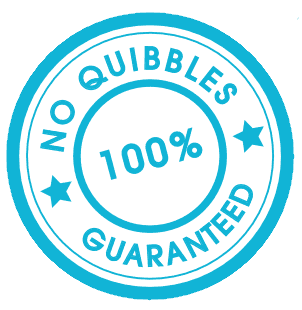
ScratchSleeves abide by a no quibbles guarantee.
Free UK Postage

Free packing and postage on all UK orders. For overseas orders to Europe postage is from £3.50, to USA is £6.50 and to the rest of the world, from £3.75.


